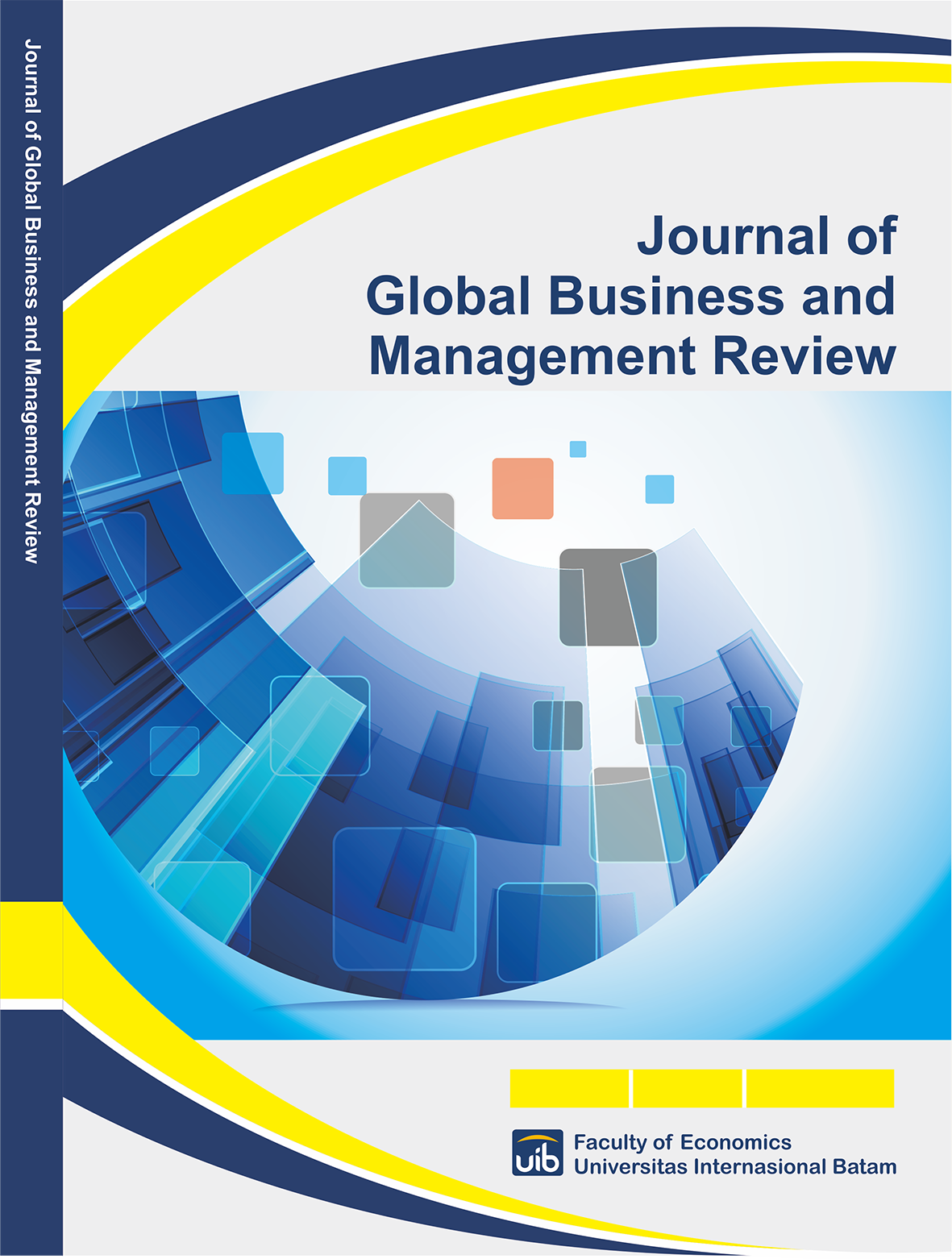Online Social Capital as a Catalyst for Female Entrepreneurship
DOI:
https://doi.org/10.37253/jgbmr.v6i1.9282Keywords:
Online social capital, Bonding social capital, Bridging social capital, Female entrepreneurship, EmpowermentAbstract
Social capital is an essential factor which supports the progression of entrepreneurship, and many recent studies have examined its positive relations to individual empowerment. Although many studies focus on social capital, research on online social capital in the context of vulnerable groups, such as women, still needs further examination. This paper aims to examine the role of online social capital in the development of female entrepreneurship by examining various constructs it may affect. Following the Preferred Reporting Items for Systematic Reviews and Meta-Analyses (PRISMA) framework, we conducted a systematic review to map existing literature from 2018 until 2023. The finding confirms that online social capital, bonding, bridging, or both, positively influence several constructs, such as social connections, emotional support, entrepreneurial perception and opportunity process, self-efficacy, and empowerment.
Downloads
References
Adler, P. S., & Kwon, S.-W. (2002). Social Capital: Prospects for a New Concept. In Source: The Academy of Management Review (Vol. 27, Issue 1). https://about.jstor.org/terms
Austin, M. J., & Nauta, M. M. (2016). Entrepreneurial Role-Model Exposure, Self-Efficacy, and Women’s Entrepreneurial Intentions. Journal of Career Development, 43(3), 260–272. https://doi.org/10.1177/0894845315597475
Banks-Weston, G., & Kolski, T. (2022). Virtually a Sisterhood: Social Connectedness and Online Collaboration. TechTrends, 66(1), 68–77. https://doi.org/10.1007/s11528-021-00678-6
Boutaleb, F. (2022). GEM 2021/22 Women’s Entrepreneurship Report From Crisis to Opportunity GEM 2021/22 Women’s Entrepreneurship Report: From Crisis to Opportunity Design and production: Witchwood Production House. http://www.witchwoodhouse.comBBRDesignhttp://bbrdesign.co.uk
Chen, Z. F., & Lee, J. Y. (2022a). Relationship Cultivation and Social Capital: Female Transnational Entrepreneurs’ Relationship-Based Communication on Social Media. International Journal of Strategic Communication, 16(2), 182–205. https://doi.org/10.1080/1553118X.2021.2005069
Choudhury, N. (2021). Female entrepreneurship and social capital: Exploring the relationship between social connection and women-owned social media-based businesses in Bangladesh. Plaridel, 18(2), 197–225. https://doi.org/10.52518/2021.18.2-03choud
Crittenden, V. L., Crittenden, W. F., & Ajjan, H. (2019). Empowering women micro-entrepreneurs in emerging economies: The role of information communications technology. Journal of Business Research, 98, 191–203. https://doi.org/10.1016/j.jbusres.2019.01.045
Dodd, M. D., Brummette, J., & Hazleton, V. (2015). A social capital approach: An examination of Putnam’s civic engagement and public relations roles. Public Relations Review, 41(4), 472–479. https://doi.org/10.1016/j.pubrev.2015.05.001
Entrialgo, M., & Iglesias, V. (2017). Are the Intentions to Entrepreneurship of Men and Women Shaped Differently? the Impact of Entrepreneurial Role-Model Exposure and Entrepreneurship Education. Entrepreneurship Research Journal, 8(1). https://doi.org/10.1515/erj-2017-0013
Faizal Samat, M., Anual, N., Nor Adawiah Hussin, S., & Loh Rahim, H. (2023). Factors Influencing Entrepreneurial Propensity Among Urban Poor Family in Malaysia. Review of Integrative Business and Economics Research, 12, 1.
Groza, M. P., Groza, M. D., & Barral, L. M. (2020). Women backing women: The role of crowdfunding in empowering female consumer-investors and entrepreneurs. Journal of Business Research, 117, 432–442. https://doi.org/10.1016/j.jbusres.2020.06.013
Hammad, R., & El Naggar, R. (2023). The Role of Digital Platforms in Women’s Entrepreneurial Opportunity Process: Does Online Social Capital Matter? Human Behavior and Emerging Technologies, 2023. https://doi.org/10.1155/2023/5357335
Ibáñez, M. J., & Guerrero, M. (2022). Women’s empowerment and emancipation through entrepreneurship: extending Professor Alistair Anderson’s contributions. Entrepreneurship and Regional Development, 34(7–8), 722–741. https://doi.org/10.1080/08985626.2022.2075038
Iqbal Khan, K., Mahmood, S., & Tariq, M. (2021). Fostering Digital Entrepreneurship through Entrepreneurial Perceptions: Role of Uncertainty Avoidance and Social Capital. JOURNAL OF BUSINESS & ECONOMICS, 13(2), 103–124. https://doi.org/10.5311/JBE.2021.26.6
James, I., Xiong, L., & Anderson, A. R. (2022). Mobilising Identity: Entrepreneurial Practice of a ‘Disadvantaged’ Identity. European Management Review, 19(3), 436–449. https://doi.org/10.1111/emre.12451
Kim, P. H., & Aldrich, H. E. (2005). Social capital and entrepreneurship. In Foundations and Trends in Entrepreneurship (Vol. 1, Issue 2, pp. 55–104). https://doi.org/10.1561/0300000002
Lavilles, R., Tinam-Isan, M. A., & Sala, E. L. (2023). Social media as an enabler of women’s entrepreneurial empowerment during the pandemic. Asian Journal of Women’s Studies, 1–18. https://doi.org/10.1080/12259276.2023.2186633
Lee, W. J. (2015). Social capital as a source of business advantages for a woman entrepreneur in the context of small-size business. Asian Social Science, 11(12), 155–167. https://doi.org/10.5539/ass.v11n12p155
Ojediran, F. O., & Anderson, A. (2020). Women’s entrepreneurship in the global south: Empowering and emancipating? Administrative Sciences, 10(4). https://doi.org/10.3390/admsci10040087
Olamide, A., & Ogbechie, R. (2021). Social capital and business performance: a study of female-owned SMEs in the Nigerian informal sector. Small Enterprise Research, 28(2), 190–205. https://doi.org/10.1080/13215906.2021.1901140
Pietarinen, A., & Kianto, A. (2020). Social Capital in the Start-Up Phase of Female-Owned Microenterprises. Springer Proceedings in Business and Economics, 133–153. https://doi.org/10.1007/978-3-030-46874-3_9
Purwianti, L. (2019). Peran Mediasi Perceived Usefulness Dalam Platform C2C E-Commerce. Jurnal Manajemen Dan Pemasaran Jasa, 12(2), 237-252.
Putnam, R. D. (1995). Bowling Alone: America’s Declining Social Capital. Journal of Democracy, vol. 6, no. 1, pp. 223-234
Qureshi, S., Welsh, D. H. B., & Khan, A. R. (2022). Training mom entrepreneurs in Pakistan: a replication model. Service Business, 16(4), 799–823. https://doi.org/10.1007/s11628-022-00480-1
Spottswood, E. L., & Wohn, D. Y. (2020). Online social capital: recent trends in research. In Current Opinion in Psychology (Vol. 36, pp. 147–152). Elsevier B.V. https://doi.org/10.1016/j.copsyc.2020.07.031
Suharso, P., Ani, H. M., Sukidin, Sedyati, R. N., Hartanto, W., & Mardiyana, L. O. (2019). Woman entrepreneurs in Jember : effect of social capital and virtual geography. IOP Conference Series: Earth and Environmental Science, 243(1). https://doi.org/10.1088/1755-1315/243/1/012093
Treas, J., Van Der Lippe, T., & Chloetai, T.-O. (2011). The Happy Homemaker? Married Women’s Well-Being in Cross-National Perspective. In Source: Social Forces (Vol. 90, Issue 1).
Vershinina, N., Phillips, N., & McAdam, M. (2022). Online communities and entrepreneuring mothers: practices of building, being and belonging. Entrepreneurship and Regional Development, 34(7–8), 742–764. https://doi.org/10.1080/08985626.2022.2083692
Woodwark, M., Wood, A., & Schnarr, K. (2021). Standing on the shoulders of giantesses: how women technology founders use single and mixed gender networks for success and change. International Journal of Gender and Entrepreneurship, 13(4), 420–448. https://doi.org/10.1108/IJGE-10-2020-0159
Downloads
Published
Issue
Section
License
Copyright (c) 2024 Journal of Global Business and Management Review

This work is licensed under a Creative Commons Attribution-NonCommercial-ShareAlike 4.0 International License.















